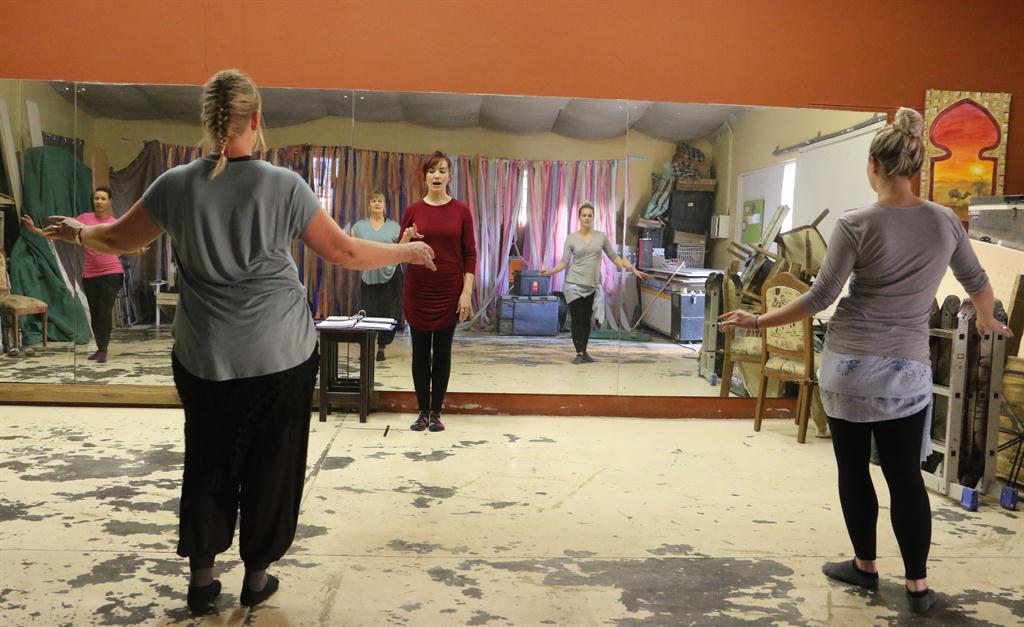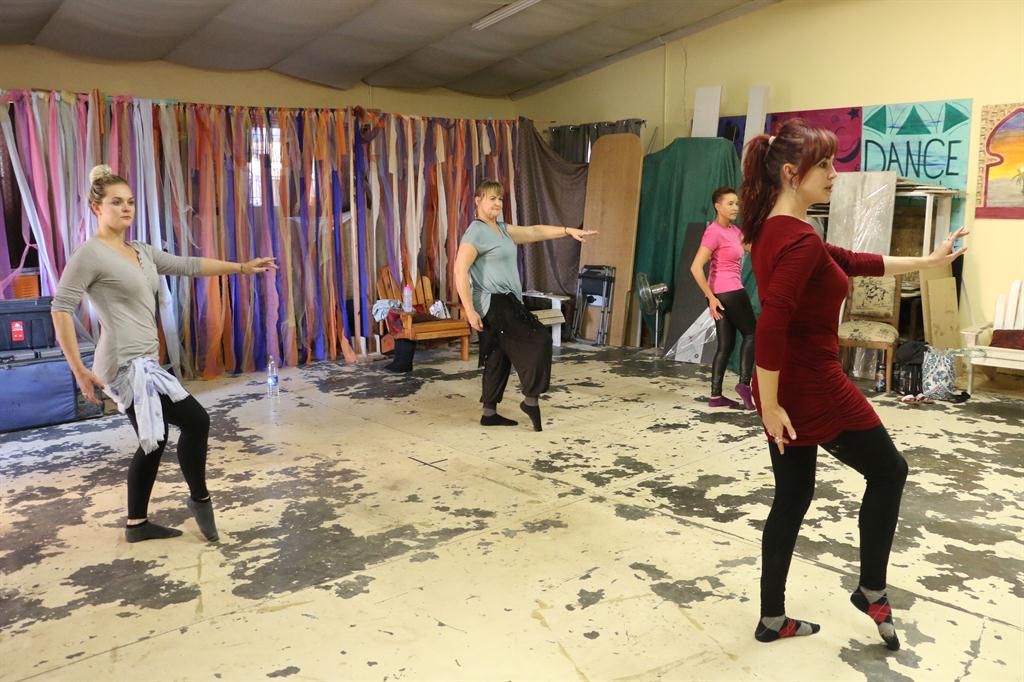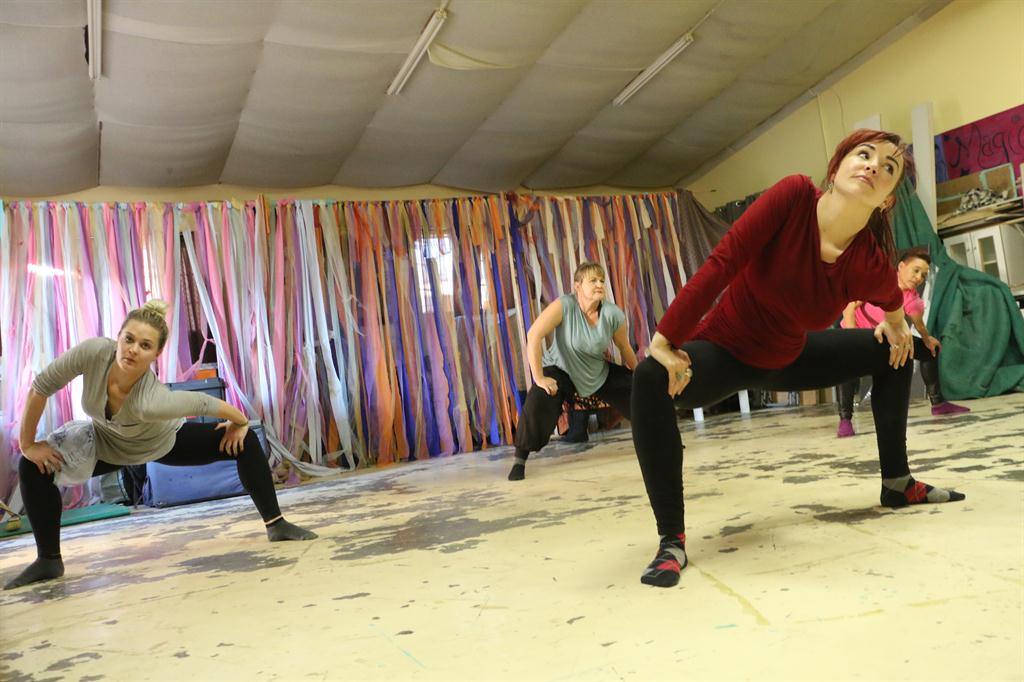A sensuous and provocative dance
Belly dancing is becoming more and more popular as a way of improving health and fitness.
Henriette Lamprecht – Belly dancing has its roots in all ancient cultures form the Orient to India to the Middle East.
The term “belly dance” is a translation of the French term danse du ventre, which was applied to the dance in the Victorian era and referred to Egyptian and oriental female dances. In Arabic, the dance is known as Raqs Sharqi (eastern dance) or Raqs Baladi in Egyptian Arabic (country dance or folk dance).
With its slow, sensual movements, sometimes lingering, often pulsating to a rhythm of ancient worlds, and its sounds, music plays a very important role. The beats determine every movement of the body, the dance becoming a visual representation of the different beats.
All over the world, including in Namibia, belly dancing is becoming more and more popular as a way of improving health and fitness, all while shimmying, wiggling and undulating your belly!
Enter Minka Greeff, whose dance journey started at the tender age of six. Ballet was to be her chosen form of dance for the next 13 years, until a meeting changed her life forever.
After completing school, Minka was introduced to belly dancing by a woman in Cape Town, South Africa. She became part of her performance troupe, and the rest is history.
“I’m crazy about the freedom and femininity it brings. To me it’s a form of empowerment because it strengthens your relationship with your body, teaching you how to move,” Minka explains.
She can still clearly remember the first belly dancing class she attended.
“It was at the theatre school at the College of the Arts close to Windhoek High School in Windhoek and to me it was the coolest thing ever! I never thought my ‘rigid’ ballet body could move like this.”
Referencing its history, Minka explains belly dancing consists of basic movements on which all the other movements and styles are based.
“There are a lot of different styles depending on the area it originates from, as well as the rhythm of the music it is performed to.”
The biggest myth about belly dancing is that it’s sexual and licentious.
“Yes, it’s sensual because it’s feminine and you use your body to demonstrate the rhythm and meaning of the music. It is however also a dance women did behind closed doors, mothers sharing it with their daughters or as part of special occasions like weddings in long dresses that didn’t reveal much. What you see today is a Western invention.”
Belly dancing “definitely” improves fitness, suppleness and weight loss, but Minka says it’s more about accepting your body, self-confidence and mastering a new skill all while meeting new people. Also it is definitely not limited to women or “older people”.
“I love how sensual and feminine it is, also boasting such an interesting history. I find a type of freedom in the movements and having power over my own body. Of course it’s also fun to dance in beautiful costumes and with inspirational women!”
([email protected]; Facebook: Bohemian Magic Dance Company)
Myths:
*Belly dancing is for big women only
*It originated in harems and was performed by women to entertain men
*Belly dancing and burlesque performing is the same thing
*It is adult entertainment and the same as stripping
*Only women can belly dance
*Belly dancing costumes are skimpy
*Belly dancing is easy
*It’s boring
*You have to wear a belly ring
*Dancers in the Middle East dance balancing swords on their heads
*All types of belly dancing are similar
(www.worldbellydance.com)
The term “belly dance” is a translation of the French term danse du ventre, which was applied to the dance in the Victorian era and referred to Egyptian and oriental female dances. In Arabic, the dance is known as Raqs Sharqi (eastern dance) or Raqs Baladi in Egyptian Arabic (country dance or folk dance).
With its slow, sensual movements, sometimes lingering, often pulsating to a rhythm of ancient worlds, and its sounds, music plays a very important role. The beats determine every movement of the body, the dance becoming a visual representation of the different beats.
All over the world, including in Namibia, belly dancing is becoming more and more popular as a way of improving health and fitness, all while shimmying, wiggling and undulating your belly!
Enter Minka Greeff, whose dance journey started at the tender age of six. Ballet was to be her chosen form of dance for the next 13 years, until a meeting changed her life forever.
After completing school, Minka was introduced to belly dancing by a woman in Cape Town, South Africa. She became part of her performance troupe, and the rest is history.
“I’m crazy about the freedom and femininity it brings. To me it’s a form of empowerment because it strengthens your relationship with your body, teaching you how to move,” Minka explains.
She can still clearly remember the first belly dancing class she attended.
“It was at the theatre school at the College of the Arts close to Windhoek High School in Windhoek and to me it was the coolest thing ever! I never thought my ‘rigid’ ballet body could move like this.”
Referencing its history, Minka explains belly dancing consists of basic movements on which all the other movements and styles are based.
“There are a lot of different styles depending on the area it originates from, as well as the rhythm of the music it is performed to.”
The biggest myth about belly dancing is that it’s sexual and licentious.
“Yes, it’s sensual because it’s feminine and you use your body to demonstrate the rhythm and meaning of the music. It is however also a dance women did behind closed doors, mothers sharing it with their daughters or as part of special occasions like weddings in long dresses that didn’t reveal much. What you see today is a Western invention.”
Belly dancing “definitely” improves fitness, suppleness and weight loss, but Minka says it’s more about accepting your body, self-confidence and mastering a new skill all while meeting new people. Also it is definitely not limited to women or “older people”.
“I love how sensual and feminine it is, also boasting such an interesting history. I find a type of freedom in the movements and having power over my own body. Of course it’s also fun to dance in beautiful costumes and with inspirational women!”
([email protected]; Facebook: Bohemian Magic Dance Company)
Myths:
*Belly dancing is for big women only
*It originated in harems and was performed by women to entertain men
*Belly dancing and burlesque performing is the same thing
*It is adult entertainment and the same as stripping
*Only women can belly dance
*Belly dancing costumes are skimpy
*Belly dancing is easy
*It’s boring
*You have to wear a belly ring
*Dancers in the Middle East dance balancing swords on their heads
*All types of belly dancing are similar
(www.worldbellydance.com)






Comments
Namibian Sun
No comments have been left on this article